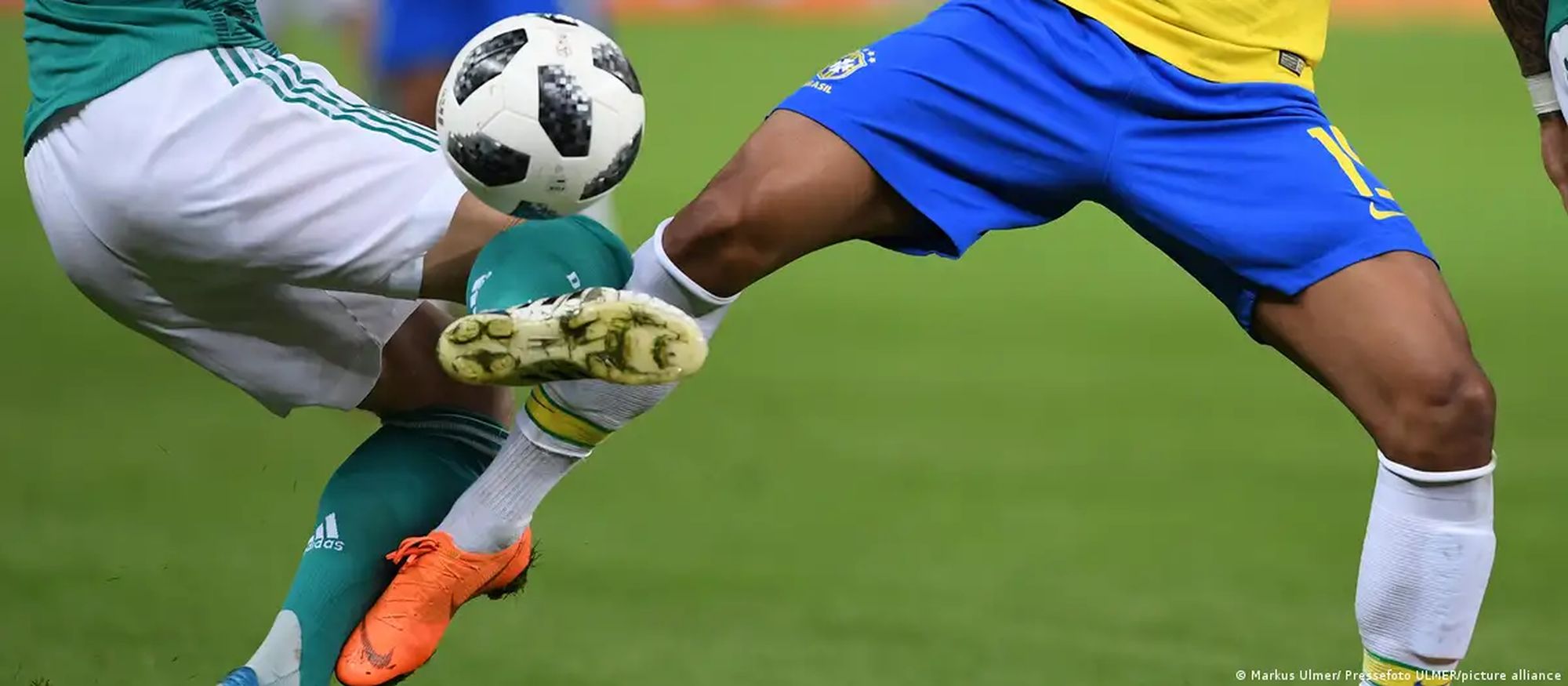When it comes to football, Germany and Brazil have a lot in common. The German Football Association (DFB) boast more than 7.3 million members, and more people play organized football in Germany than in any other country in the world.
Meanwhile, Brazil’s potential for producing football stars is considered almost limitless, and no other country exports more talent to foreign leagues. In 2021, more than 10,000 Brazilian footballers earned their money abroad.
For decades, both nations were perennial favorites when it came to major international tournaments. Even though it’s been 21 years since Brazil won their last World Cup (2002 in Japan and South Korea), they have won the title a record five times.
Germany’s four titles, the most recent one won in 2014, are second best — a distinction they share with Italy. However, in recent years things have been going anything but swimmingly for the two traditional footballing powerhouses.
2023: a year to forget
Both concluded this year’s international schedule with defeats in prestigious matches. Brazil lost 1-0 to their arch-rival, world champions Argentina, in Rio de Janeiro. This was the Seleção’s first-ever home defeat in a World Cup qualifier.
The match was overshadowed by riots in the stands of the Maracanã Stadium. Germany stumbled to a 2-0 loss after a shoddy performance against neighboring Austria in Vienna. Four days earlier, Germany coach Julian Nagelsmann’s team had lost 3-2 to Turkey in Berlin.
Germany ended 2023 with two consecutive defeats, but Brazil had three. The loss in the Superclássico followed defeats by Uruguay (2-0) and Colombia (2-1) in World Cup qualifying matches. Only once have the Brazilians suffered a longer losing streak, when they lost four in a row in 2001.
The overall 2023 records were similarly dismal for the two teams, with both losing more than half of their games: Brazil lost five of their nine matches, Germany six of their 11.
2014 a turning point
Perhaps ironically, Germany’s troubles seemed to start just after one of their biggest triumphs; things started to go south almost immediately after they won the 2014 World Cup in Brazil. Germany failed to make it past the semifinals at the 2016 European Championship in France. At the COVID-19-delayed 2021 European Championship, Germany’s tournament was over after the round-of-16.
As if that wasn’t bad enough, the 2018 World Cup in Russia and the 2022 World Cup in Qatar, were disastrous, with Germany failing to advance to the knockout phase in either one.
Looking at the Seleção’s World Cup results since that 2014 tournament on home soil, it also represents a turning point for them. The Brazilians finished in a disappointing fourth place – and that embarrassing 7-1 loss to Germany in the semifinals almost seems to have had a lasting effect.
Brazil were considered to be among the favorites prior to the 2018 and 2022 World Cups, but they wound up packing their bags and leaving both Russia and Qatar after falling in the quarterfinals.
Difficult search for the right coach
Another thing that Brazil and Germany have in common has been their difficulty in finding the right national team coach. There is a general consensus that the problem can’t be a lack of talent among the players. Both Germany and Brazil have many players plying their trades at top international clubs, where they regularly show off their potential on the pitch.
Somehow though, this prowess goes untapped when they play for their national teams, which are marked by shaky defending and precious little threat in front of the opposing goal.
Former Brazil coach Tite, who guided the Seleção to a Copa America title in 2019, stepped down at the start of this year. Since Brazil’s football federation (CBF) couldn’t quickly find a permanent replacement, they appointed under-20 national team coach Ramon Menezes on an interim basis. He lost two of the three matches in which he was in charge. In July, Fernando Diniz, a successful club coach, took over the national team on an interim basis.
This is not so dissimilar to Germany coach Julian Nagelsmann, who took over from the hapless Hansi Flick in September.
Both Diniz and Nagelsmann are on short-term contracts: Diniz signed on for just one year. According to CBF President Ednaldo Rodrigues, Carlo Ancelotti will take over as Brazil’s national team coach in mid-2024. However, the Italian has not confirmed this — and he remains under contract with Real Madrid.
Nagelsmann’s contract as Germany coach only runs until the end of the 2024 European Championship. Should Germany disappoint on home soil, the 36-year-old could well find himself out of work next summer — just like Fernando Diniz.
DW

